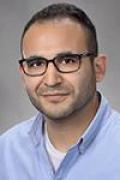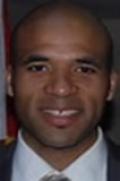July 6-24, 2015
The Crime and Justice Summer Research Institute (SRI) is organized by Ruth Peterson and funded by the National Science Foundation (NSF) and the Criminal Justice Research Center.
The goal of the SRI is to promote successful research projects and careers among faculty from underrepresented groups working in areas of crime and criminal justice. During the institute, each participant works on completing an ongoing project (either a research paper or grant proposal) in preparation for journal submission or agency funding review. In addition, participants gain information to serve as a tool-kit, tailored to successful navigation of the academic setting.
During the SRI, participants are provided with:
- Resources for completing their research projects;
- Senior faculty mentors in their areas of study;
- Opportunities to network with junior and senior scholars;
- Workshops addressing topics related to publishing, professionalization and career planning; and
- Travel expenses to Ohio and living expenses during the institute.
The institute concluded in a two-day Racial Democracy, Crime and Justice Workshop held on July 23 and 24 at at the Frank W. Hale Black Cultural Center, where our participants presented their completed research before a scholarly audience.
Fellows in the 2015 Crime and Justice Summer Research Institute

Armado Lara-Millan (University of California, Berkley) completed his PhD in sociology at Northwestern University in 2013. He held two post-doctoral fellowships (University of Delaware’s Presidential Diversity Post-doctoral Fellowship [2013-2014] and Robert Wood Johnson Health Policy Research Scholarship [2014-2016]) prior to becoming an assistant professor of sociology at the University of California, Berkeley in 2016. Lara-Millan is an ethnographer and historical sociologists who is broadly interested in issues of health policy, mass imprisonment and political sociology. These interests are brought together in a book manuscript that he is working on tentatively titled “Seeing Like an Overwhelmed State: Obscuring Demand, Redistributing the Poor, and the Illusion of Public Policy in the Administration of Hospital and Jail Overcrowding.” The paper Lara-Millan worked on during the institute was also at the intersection of health care, imprisonment and public policy. In “Prolonging Mass Imprisonment: Healthcare Spending as a Solution to America’s New Correctional Crisis,” he argues and “demonstrates” that the rise of medical spending in correctional institutions is less a benevolent turning point in American penology and more an adaptive organizational solution for a correctional system under crisis (due to austerity and overcrowding). To date, Lara-Millan has published one journal article and one book chapter, both sole authored, and he has a co-authored paper with revise and resubmit status at Criminology.

John Eason (Texas A&M) participated in the SRI in 2010. John received his PhD in sociology from the University of Chicago in 2008. When he participated in the 2010 SRI, he was a post-doctoral fellow in the Department of Sociology at Duke University and was on his way to joining the faculty in the School of Criminology and Criminal Justice at Arizona State University as an assistant professor. Eason’s research is geared to understanding how prisons impact the economy of rural towns. During the 2010 SRI, he worked on a paper entitled "Development by Arrest?: Measuring the Impact of Prison Placement Using Pooled Time-Series Analysis." Since 2010, Eason has moved to Texas A&M, but his research interests have remained the same. During the institute, he worked on a paper entitled “Prisons as Panacea or Pariah?: Measuring the Impact of the Prison Boom on Crime, Demography and the Economy of Rural Towns.” This paper is related but not identical to his earlier SRI project. He also continues to work on a book stemming from his dissertation research. Overall, to date, Eason has published four journal articles (2 sole-authored) and one co-authored book chapter.

Daniel E. Martinez (George Washington University) is an assistant professor in the Department of Sociology at George Washington University. He completed his PhD in 2013 at the University of Arizona. Martinez conducts research on unauthorized migration and on the experience of border crossing. He also has an emerging interest in transnational crime, including human smuggling and trafficking, insurgency and drug trafficking organizations. In line with his current interests, Martinez’s dissertation focused on the border crossing experience of unauthorized migrants along the Arizona-Sonora border. Other work has focused on the likelihood of death among unauthorized border crossers in this area. His summer institute project will focus on the victimization of unauthorized migrants by Bajadores (stick-up crews) in southern Arizona. Currently, Martinez has five journal publications and two book chapters. He is the primary author of two of the journal articles, both published in 2013.

Naomi Sugie (University of California, Irvine) is completing her first year as an assistant professor at the University of California, Irvine. She joined the faculty in Criminology, Law, and Society after receiving her PhD in sociology and social policy from Princeton University in 2014. Sugie’s research has two areas of focus: (1) the consequences of incarceration and other forms of criminal justice contact for individuals, their romantic partners, and their family members and (2) factors related to criminal behavior and deviance over the life course, from youth through elderly ages. Related to the former, her dissertation work addressed the issue of: “Finding Work: A Smartphone Study of Job Searching, Social Contacts, and Wellbeing after Prison.” The paper that Sugie worked on during the institute is also on this topic: “A Smartphone Study of Job Search and Emotional Wellbeing at Reentry.” Naomi has a sole-authored article in Social Forces (2012) and three additional co-authored journal articles, all published during her years as a graduate student at Princeton.

Randol L. Contreras (University of Toronto) holds a joint appointment as Assistant Professor of Sociology and of Criminology and Socio-legal Studies at the University of Toronto. He received his PhD in sociology from the Graduate Center of the City University of New York in 2008. Prior to joining the faculty at Toronto in 2014, Contreras held assistant professor positions at Towson University and at California State University, Fullerton. He is an ethnographer whose interest is in explaining the human pain and suffering that is often prevalent in marginal urban areas. To this end, his dissertation focused on the drug market in his South Bronx neighborhood and resulted in his book on Stickup Kids: Race, Drugs, Violence and the American Dream. He has also published four related journal articles and book chapters. During the institute, Randol worked on a paper entitled “There’s No Sunshine: Territorial Anguish and Crime in Compton and South Los Angeles.” He focused on how residents of the noted areas respond to the blemished and criminalized reputation of the communities in which they reside.

Stacia Gilliard Matthews (Rutgers University) is an assistant professor in the Department of Sociology, Anthropology, and Criminal Justice at Rutgers University, Camden. She joined the Rutgers faculty after serving as an assistant professor of Criminology at West Virginia University from 2009-2011, following the completion of her PhD in justice studies at Arizona State University in 2009.Gilliard Matthews is broadly interested in how race, gender, class and place intersect in their influence on justice outcomes, especially as these apply to youth. Her dissertation focused on “Homegrown Terrorist,” and involved a comparison of White Supremacist Hate Groups in States across the United States from 2000-2007. During the institute, she developed a paper focused on resistance and resilience among urban youth. To date, she has seven publications. Gilliard Matthews is sole or first author of five of the eight papers.

Akwasi Owusu–Bempah (Indiana University) is an assistant professor of criminal justice at Indiana University. He received his PhD in criminology and socio-legal studies from the University of Toronto in 2014 and joined the faculty at Indiana that same year. Owusu-Bempah is interested in how race intersects with crime and criminal justice. His current work examines the views and experiences of Black police officers in Toronto Canada. Owusu-Bempah began this work with his dissertation, “The Policing of Black Males in the Greater Toronto Area.” The paper that worked on during the institute builds on the dissertation project; it is entitled, “Insider Perspectives on Race and Policing: The Views and Experiences of Black Police in Toronto, Canada.” Thus far, Owusu-Bempah has nine publications dating back to his early years as a PhD student. Among the publications, six are journal articles and three are in edited volumes. All but one of his papers is co-authored, with Owusu-Bempah being the lead author of three of the eight.

Christina Campbell (University of Cincinnati) Campbell received her PhD in community psychology from Michigan State University in 2012, after which she held a National Institute of Drug Abuse post-doctoral fellowship at Yale University’s Department of Psychiatry. In 2014, Campbell held a joint appointment in psychology and criminology and criminal justice at Southern Illinois University. She will begin a tenure track appointment in criminal justice at the University of Cincinnati in autumn 2015. Campbell is broadly interested in delinquency prevention, risk assessment and juvenile justice policy. In general, she seeks to inform interventions and policies for children (and adults) who are involved in, or are at risk for coming in contact with the criminal justice system. Related to these interests, her summer institute project examined the varying effects of neighborhood socio-economic conditions on recidivism for juveniles in four criminogenic risk groups. To date, Campbell has eight co-authored journal articles, dating back to when she was a master’s degree candidate at Michigan State, with four articles published in the years since receiving her PhD. The latter group includes a 2014 article in which she is the first of seven authors. She also has several first-authored articles under review.
